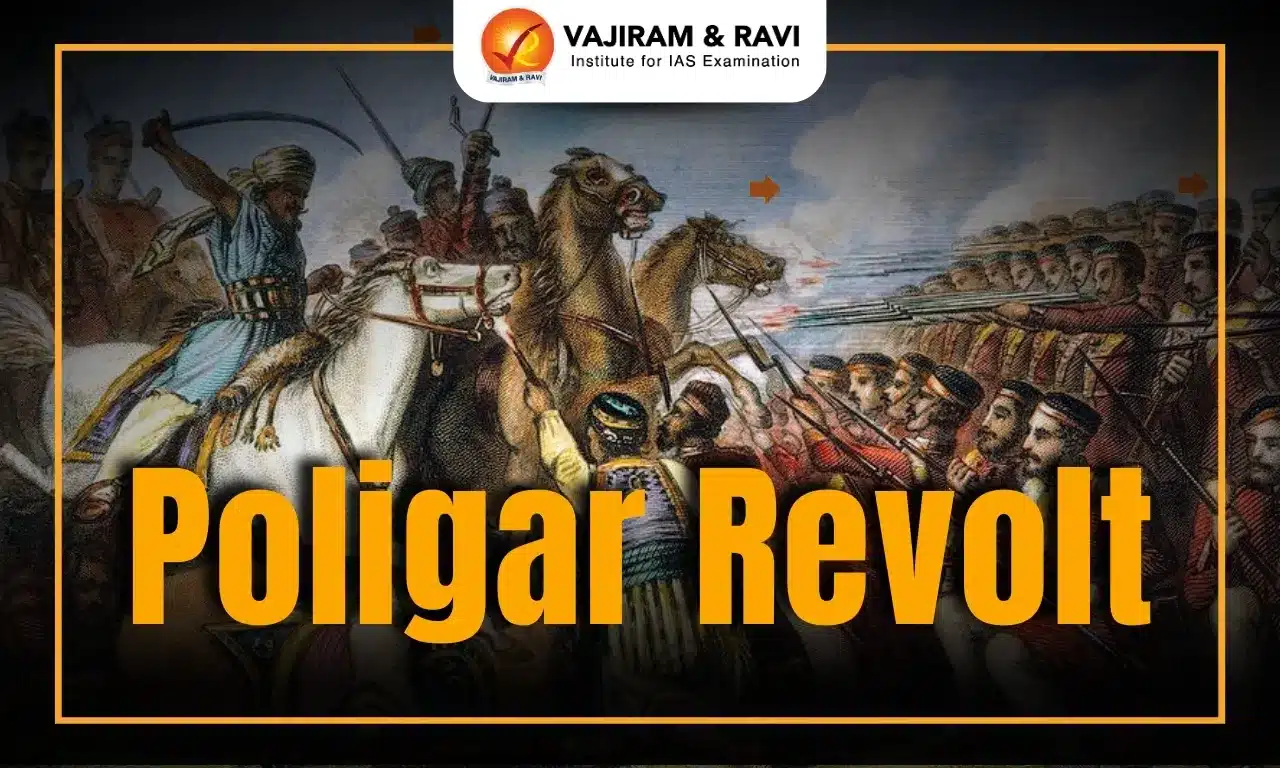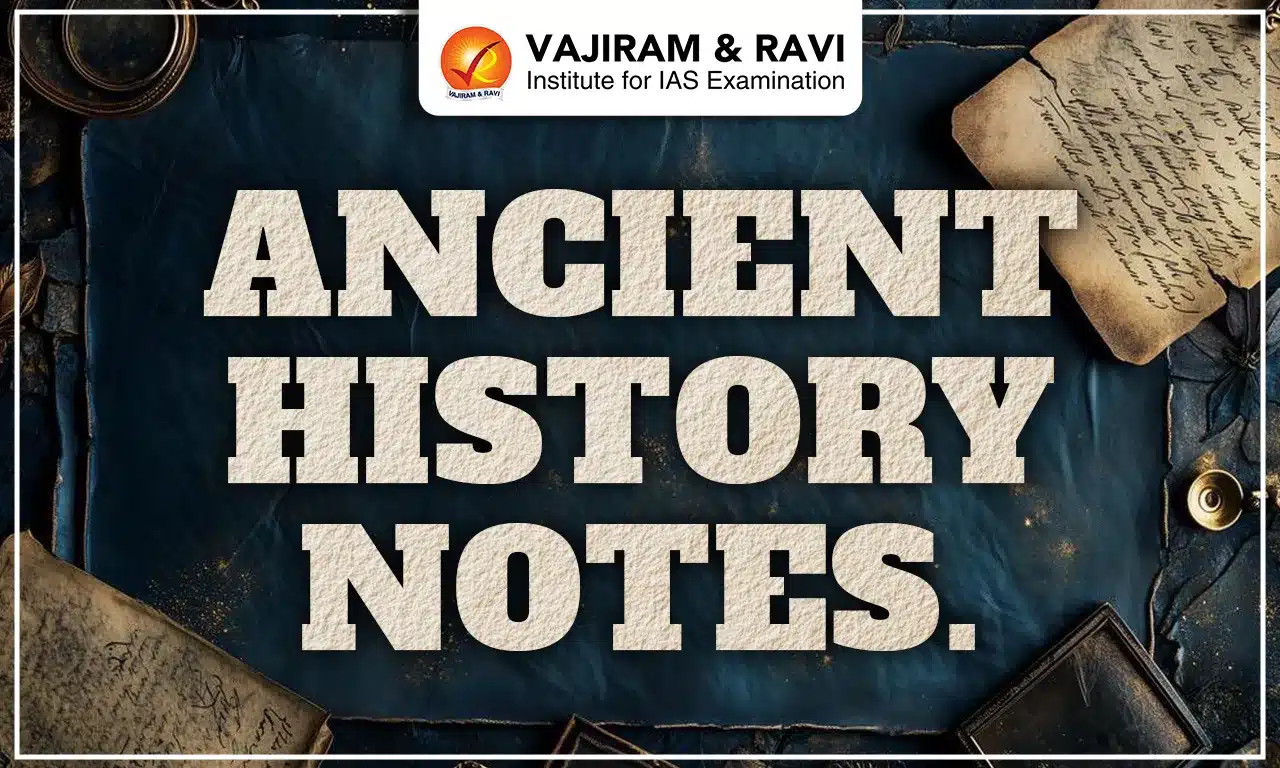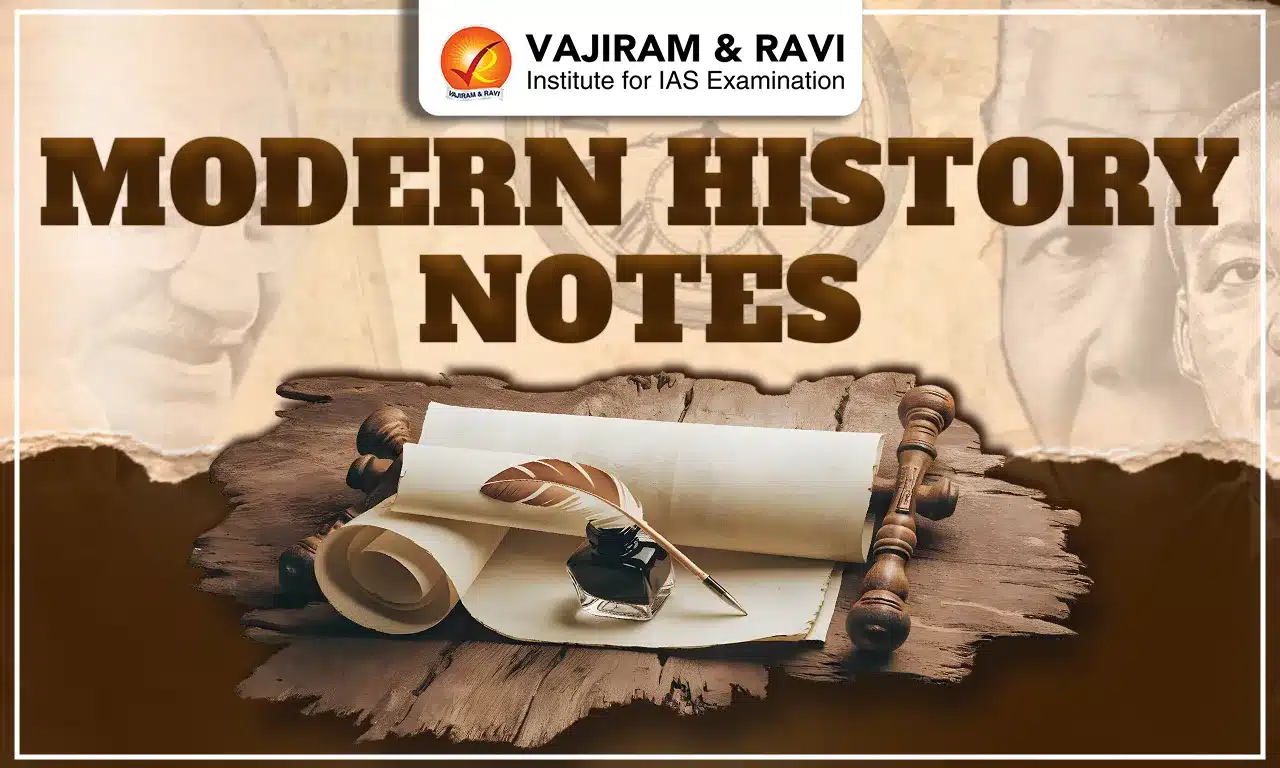The Poligar revolt was a series of uprisings in southern India that took place between 1799 and 1805 and is considered one of the earliest struggles for Indian independence. It consisted of two major conflicts, the First and Second Poligar Wars, and involved prominent leaders like Veerapandya Kattabomman and the Marudu Brothers.
The revolt was triggered by the British undermining the authority of the Poligars and imposing oppressive tax policies. These policies angered local leaders, leading to widespread uprisings. The Poligar Revolt remains a significant chapter in India's fight against British colonial rule.
What was the Poligar Revolt?
The Poligar Revolt, also known as the Palayakkarars Revolt, was a civil uprising in South India from 1799 to 1805. The term "Poligars" refers to feudal lords who governed fortified territories granted by the Nayakas. The revolt was a response to the increasing power and economic exploitation by the British East India Company.
First Poligar War
The first significant conflict between the Poligars and the British occurred in 1799, sparked by the British imposition of a new land tax system. Kattabomman Nayakan of Panchalankurichi emerged as a key leader during the First Poligar War.
- Kattabomman Nayakan boldly refused to comply with the British tax demands, symbolizing the Poligars' resistance.
- Despite his efforts, the war ended in the defeat of Poligars.
Second Poligar War
The Second Poligar War against the British was triggered by the escape of imprisoned Poligars from Palamcotta Fort. Following their escape, they captured Tuticorin and several other forts. They later joined the Maruthu Rebellion, led by Maruthu Pandiar of Sivaganga.
- This phase of the war was more organized and widespread, drawing support from peasants and local villagers angered by British taxation policies and oppression.
- The conflict ultimately ended with the capture of the Marudhu brothers in 1801.
Leaders of Poligar Wars
The Poligar War saw important leaders like Veerapandiya Kattaboman and Marudu Pandiar brothers, who challenged the British Colonial rule in Southern India. They were instrumental in organising an armed rebellion against the British.
- Veerapandia Kattaboman: Kattaboman Nayakan was the ruler of Panchalankurichi and one of the most famous Poligar. He refused to pay taxes to the British. His defiance of paying taxes led to conflict with the British.
- Marudu Pandiar Brothers: Periyar Marudu and Chinna Marudu were known as Marudu brothers. They ruled the Shivganga region. Marudu brothers, along with other Poligars, fought against the British in the Second Poligar War. They were captured in 1801 and executed at the fort of Tirupattur.
Poligar Revolt Causes
The Poligar Revolt was a response to the oppressive policies imposed by the British East India Company on the Poligars. The British sought to dismantle the traditional feudal system and monopolize the tax system that had been in place under the Poligars for years. Key causes include:
- Direct Annexation: The British implemented a policy of direct annexation of Poligar lands and stripped them of their military rights, weakening their authority.
- Religious Interference: The British also interfered in the religious and cultural practices of the local people.
- Land Reforms: Additionally, the East India Company introduced land reforms, altering the traditional land tenure system and increasing the tax burden on the Poligars.
Poligar Revolt Impacts
The Poligar War concluded with the signing of the Carnatic Treaty in 1801 between the Nawab of Arcot and the East India Company. This treaty marked the British assumption of direct control over Tamil Nadu, effectively ending the Poligar System.
-
- The revolt raised awareness about the oppressive and exploitative policies of the British.
- It intensified resentment against British rule among the rural population and played a significant role in fostering a sense of Indian nationalism.
| Other Related Posts | |
| Civil Uprisings Before 1857 | Velu Thampi Dalawa (1765–1809) |
| Moplah Rebellion | Ramosi Rebellion 1822-1829 |
| Poligar Revolt | Rampa Rebellion of 1922 |
| Alluri Sitarama Raju | |
Last updated on February, 2026
→ UPSC Notification 2026 is now out on the official website at upsconline.nic.in.
→ UPSC IFoS Notification 2026 is now out on the official website at upsconline.nic.in.
→ UPSC Calendar 2026 has been released.
→ Check out the latest UPSC Syllabus 2026 here.
→ Join Vajiram & Ravi’s Interview Guidance Programme for expert help to crack your final UPSC stage.
→ UPSC Mains Result 2025 is now out.
→ UPSC Prelims 2026 will be conducted on 24th May, 2026 & UPSC Mains 2026 will be conducted on 21st August 2026.
→ The UPSC Selection Process is of 3 stages-Prelims, Mains and Interview.
→ Prepare effectively with Vajiram & Ravi’s UPSC Prelims Test Series 2026 featuring full-length mock tests, detailed solutions, and performance analysis.
→ Enroll in Vajiram & Ravi’s UPSC Mains Test Series 2026 for structured answer writing practice, expert evaluation, and exam-oriented feedback.
→ Join Vajiram & Ravi’s Best UPSC Mentorship Program for personalized guidance, strategy planning, and one-to-one support from experienced mentors.
→ UPSC Result 2024 is released with latest UPSC Marksheet 2024. Check Now!
→ UPSC Toppers List 2024 is released now. Shakti Dubey is UPSC AIR 1 2024 Topper.
→ Also check Best UPSC Coaching in India
Poligar Revolt FAQs
Q1. Who was the leader of the Poligar movement?+
Q2. Who were called poligars?+
Q3. What is the poligar revolt also known as?+
Q4. Who introduced the Poligar system in India?+
Q5. Who is Jaga Veerapandiya Kattabomman?+


















